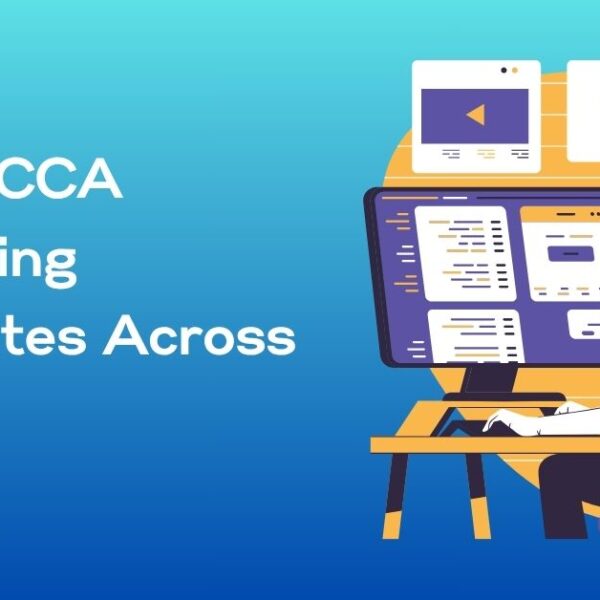When aspiring finance professionals in Ireland consider pursuing the ACCA qualification, they often initially focus on the published costs of exams and registration fees. While these direct expenses form an important part of the financial equation, they represent only one element of the comprehensive investment required. This article examines the comprehensive financial landscape of ACCA studies in Ireland, encompassing both overt and hidden costs, as well as strategies to manage the investment effectively.
Direct Financial Investments
Registration and Annual Subscription
The ACCA journey begins with an initial registration fee, followed by annual subscription payments throughout your student journey. As of 2025, these administrative costs include:
- Initial registration fee: approximately €89
- Annual student subscription: around €122 per year
These fees are payable directly to ACCA and remain constant regardless of how quickly you progress through the qualification.
Examination Fees
The 13 examinations that comprise the complete ACCA qualification carry varying costs depending on their level:
- Applied Knowledge (first level) exams: approximately €89 per paper
- Applied Skills (intermediate level) exams: approximately €122-€137 per paper
- Strategic Professional (advanced level) exams: approximately €170-€225 per paper
For students completing all examinations without exemptions, this represents a total examination cost of approximately €1,800 over the qualification journey.
Exemption Fees
Many Irish students enter ACCA with prior qualifications that exempt them from certain papers. While this reduces study time, exemptions carry fees similar to sitting the actual examinations:
- Applied Knowledge exemptions: approximately €89 per paper
- Applied Skills exemptions: approximately €122-€137 per paper
A graduate with a relevant accounting degree might receive up to nine exemptions, representing an upfront cost of approximately €850-€1,000 at the beginning of their ACCA journey.
Study Materials and Resources
Beyond tuition, additional study resources typically include:
- Official ACCA textbooks: €30-€45 per paper
- Practice and revision kits: €25-€35 per paper
- Online question banks: €150-€300 for annual subscriptions
- Calculator and other examination equipment: €50-€100
Over the entire qualification, these materials may total €800-€1,200, depending on the study approach and exemptions received.
Tuition Costs
The most variable expense in the ACCA qualification, tuition options in Ireland include:
- Self-study: Minimal direct cost, but requires exceptional self-discipline
- Online courses: €250-€500 per paper, offering flexibility with structured support
- Classroom-based courses: €400-€800 per paper, providing face-to-face instruction
- Blended learning: €300-€600 per paper, combining online and limited classroom elements
- Revision courses: €150-€300 per paper, focused on examination preparation
A student taking coaching for all papers may invest between €3,000 and €7,000 in tuition, depending on the chosen delivery method and any exemptions received.
Beyond the Price Tag: Hidden Financial Considerations
Opportunity Costs
Perhaps the most significant hidden investment in the ACCA qualification relates to the time commitment required:
- Study hours: 150-200 hours per examination paper
- Total qualification study time: 1,500-2,500 hours (depending on exemptions)
For working professionals, these hours often come from evenings, weekends, and holidays that could otherwise be spent on income-generating activities such as overtime, freelance work, or developing side businesses. Valuing this time at even modest hourly rates reveals a substantial opportunity cost.
Career Progression Delays
Some professionals find their career advancement temporarily slows during intensive study periods, as they may:
- Decline additional responsibilities to preserve study time
- Postpone job changes to maintain study routines
- Missed networking opportunities due to examination commitments
- Reduce visibility on high-profile projects during key examination periods
While difficult to quantify precisely, these factors can impact earning potential during the qualification period.
Workplace Flexibility Costs
To accommodate ACCA studies, many Irish professionals negotiate arrangements that may affect their compensation:
- Reduced working hours with proportional salary adjustments
- Unpaid study leave before examinations
- Positions with lower base salaries but generous study support
- Roles with less overtime potential but more predictable hours
These accommodations create financial trade-offs that should factor into comprehensive cost calculations.
Personal Life Expenses
The ACCA journey often necessitates additional expenditures to create sustainable study conditions:
- Creating appropriate study environments at home
- Additional childcare to secure uninterrupted study time
- Convenience services (meal delivery, cleaning) during intensive study periods
- Travel costs to examination centres
- Accommodation near test centres for early morning examinations
- Stress management and wellbeing activities
These incremental costs, while individually modest, can accumulate significantly over a multi-year qualification journey.
Examination Resit Considerations
With pass rates for some papers below 50%, many students face the reality of examination failures. Each unsuccessful attempt essentially doubles the cost for that specific paper:
- Additional examination fees
- Extra study materials for updated syllabi
- Extended subscription periods
- Potential additional tuition for challenging topics
Budgeting should account for at least some examination resits throughout the qualification process.
The Return on Investment: Financial Benefits
While the comprehensive investment is substantial, the financial returns from the ACCA qualification in Ireland create a compelling value proposition:
Salary Premium
ACCA qualification significantly enhances earning potential in Ireland’s financial sector:
- Entry-level positions: Qualified professionals typically earn 15-25% more than their non-qualified counterparts
- Mid-career roles: The differential often increases to 25-40% for specialists with 5+ years of experience
- Senior positions: Certain leadership roles become accessible only with professional qualifications
Industry surveys suggest the lifetime earnings premium for the ACCA qualification in Ireland exceeds €500,000 over a typical career span.
Career Acceleration
Beyond immediate salary benefits, qualification typically accelerates career progression:
- Faster promotion through junior and middle management positions
- Earlier access to specialist roles with premium compensation
- More rapid transition to client-facing responsibilities with bonus potential
- Expanded opportunities for international assignments with enhanced packages
- Greater visibility for senior leadership consideration
This acceleration compounds the salary differential, creating a significant long-term financial advantage.
Employment Security
ACCA qualification enhances resilience through economic cycles:
- Lower unemployment rates among qualified professionals during downturns
- Shorter periods between roles when transitions occur
- Greater ability to pivot between sectors and specialisations
- Stronger positioning for limited opportunities during hiring freezes
- More robust freelance and consulting options are available if desired
This security carries substantial value beyond direct compensation, particularly in volatile economic periods.
Making the Investment Manageable: Practical Strategies
Employer Sponsorship
Many Irish employers offer financial support for ACCA studies, typically structured as:
- Full payment of examination fees and subscriptions
- Partial or complete coverage of tuition costs
- Paid study leave allocations
- Completion bonuses upon qualification
These packages can dramatically reduce personal financial outlay, although they often come with contractual commitments to remain with the organisation for a specified period after qualification.
Tax Relief Opportunities
Irish residents can claim tax relief on ACCA fees under the Tuition Fees Tax Relief scheme:
- Relief available at the standard 20% rate
- Applicable to registration, examination, and exemption fees
- Potentially available for certain tuition costs
- Annual claims submitted through standard tax returns
This effectively reduces the net cost of qualification by one-fifth, representing substantial savings over the complete journey.
Phased Study Approaches
Rather than pursuing all papers simultaneously, many Irish professionals adopt phased approaches that spread the investment:
- Focusing on one examination at a time
- Alternating intensive study periods with consolidation phases
- Aligning challenging papers with quieter work periods
- Taking strategic breaks between examination levels
This measured progression creates more manageable financial commitments while allowing earnings to increase as early papers are completed.
Strategic Exemption Decisions
While exemptions reduce study time, they aren’t always financially advantageous:
- Exemption fees often match examination fees
- Self-study for straightforward papers may cost less than the exemption fees
- Building stronger foundations sometimes justifies taking papers despite eligibility
- Early papers provide valuable examination experience for later, more challenging assessments
Carefully evaluating each potential exemption rather than automatically accepting all available options can optimise the financial equation.
Payment Planning Tactics
Several approaches can improve cash flow management throughout the qualification journey:
- Interest-free payment plans offered by many tuition providers
- Early registration discounts for examination entries
- Package deals for booking multiple papers simultaneously
- Credit card reward programmes for significant payments
- Dedicated savings accounts for future ACCA expenses
These tactical approaches don’t reduce the overall investment but can make it more financially manageable.
Conclusion: A Worthwhile Investment in Professional Future
When comprehensively evaluated, the true cost of the ACCA qualification in Ireland extends significantly beyond the published fees. Direct expenses, combined with opportunity costs, career considerations, and lifestyle adjustments, result in a substantial investment of both financial resources and personal commitment.
However, this holistic view must be balanced against the equally comprehensive benefits. ACCA qualification delivers not merely a credential but a transformative professional identity that enhances earning potential, career security, and advancement opportunities throughout a working lifetime. In Ireland’s sophisticated financial environment, these advantages hold particular value, creating compelling returns on the initial investment.
For prospective students, realistic financial planning should encompass all aspects of the ACCA journey, including both obvious and hidden costs, as well as effective strategies to manage them. With this comprehensive understanding, the qualification represents not an expense but an investment in future prosperity, opening doors to rewarding careers across Ireland’s diverse financial landscape.
For most Irish finance professionals, the question eventually shifts from whether they can afford to pursue the ACCA qualification to whether they can afford not to, recognising the substantial lifetime value this professional credential delivers in an increasingly competitive global marketplace.








